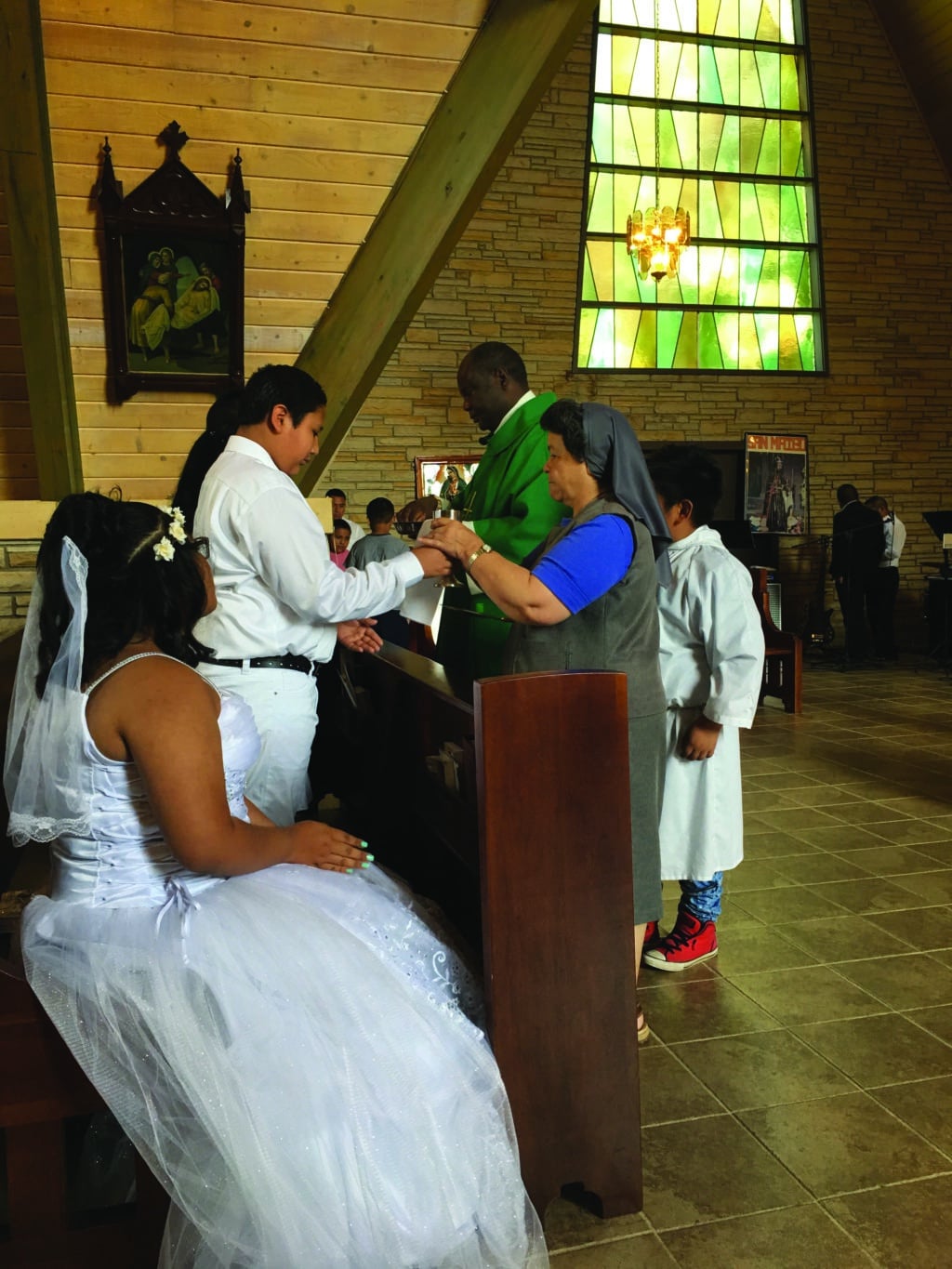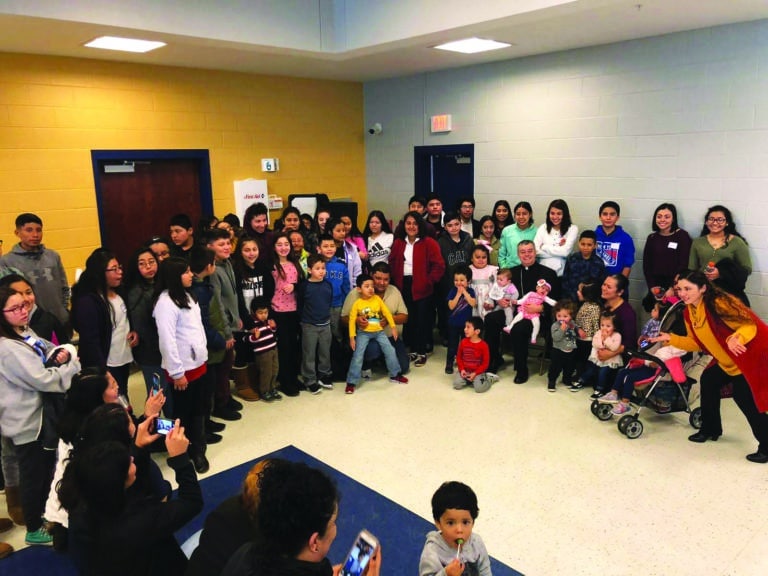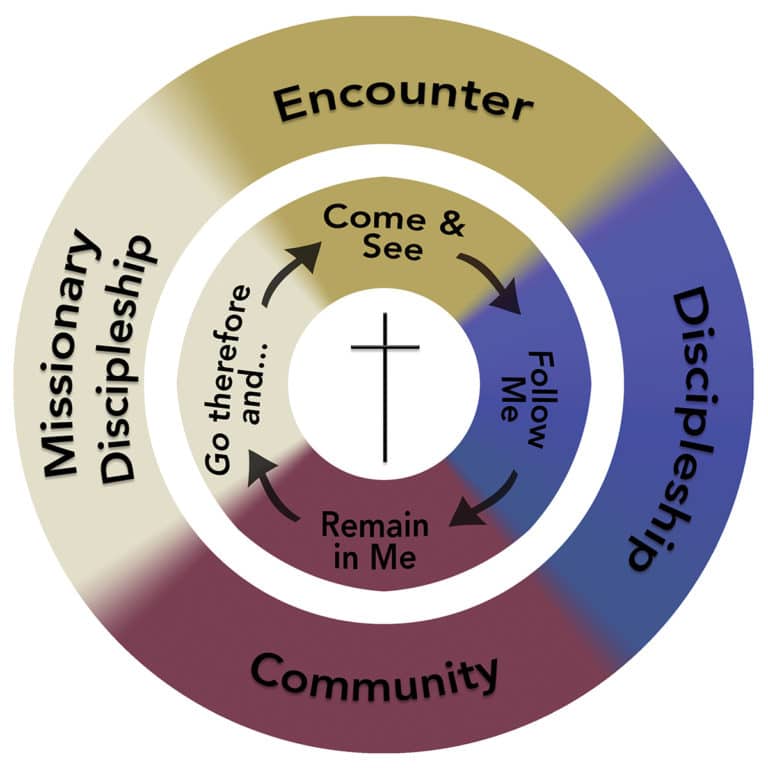SEE
The Hispanic/Latino community in the Diocese of Owensboro are mostly immigrants from Mexico, Guatemala, and El Salvador and their children born in the U.S. There are also people from other Central and South American countries and the Caribbean. Some more established families already have grandchildren or great-grandchildren born in the United States. In the Diocese of Owensboro and for the purposes of this plan, the phrase Hispanic/Latino community also includes Mayan Catholics of indigenous descent who bring the richness of their own languages and distinct cultures.
The Hispanic/Latino community is known for its deep roots of faith and brings many blessings to our diocesan Church. Many of the Hispanic/Latino immigrants are Catholic by tradition, but sometimes there is a lack of a personal encounter with Jesus and a personal commitment to the Catholic Church. Many Hispanics/Latinos come to parishes for Mass, other sacraments, or popular devotions, but many times they lack a basic faith formation and only come once in a while. This lack of catechesis and commitment to the Church makes it difficult for them to transmit the faith to the next generation. On the other hand, it is important to note that there are cases of Hispanics/Latinos who, despite lacking regular participation or formation in the Church in their home countries, have found parishes here in the Diocese of Owensboro with open doors where they have been motivated to learn more and take more responsibility for their Catholic faith.

Students receiving the Sacrament of First Communion at Holy Trinity Parish in Morgantown on June 10, 2018.
The catechesis that is offered to children and youth in the parishes is sometimes not very accessible to the Hispanic/Latino community and sometimes does not empower parents as the primary teachers of the faith. However, it should be noted that the changes that have been made out of necessity during the pandemic have involved parents much more. The methods of catechizing children and youth sometimes do not connect to
their daily lives, their main goals, or their personal faith lives. Many children and youth leave catechetical programs without a personal commitment to their faith and to the Church, and many children and young people ultimately leave the Church.
In some parishes the Hispanic/Latino community is very active, but many parishioners do not recognize their baptismal call to evangelize and commit themselves to ministries. Some parishes have bilingual priests and paid staff dedicated to Hispanic/Latino ministry, and in other parishes there are not enough human resources to accompany the Hispanic community. Dedicated volunteers have emerged in various parishes thanks to the pastoral accompaniment as well as movements like Christ Renews His Parish and the Charismatic Renewal, but many of them feel they do not have the faith formation or ministry training necessary to be leaders.
JUDGE
Evangelizing communities must be created full of missionary disciples. “The Church which ‘goes forth’ is a community of missionary disciples who take the first step, who are involved and supportive, who bear fruit and rejoice.” (EG 24)
“Missionary discipleship takes place within the context of evangelization and begins with an encounter with Christ. We look to Jesus, the Master who personally formed his apostles and disciples, as the model of evangelization. Christ gives us the method: ‘Come and see’(Jn 1:46), ‘Follow me’ (Mt 9:9), ‘Remain in me’ (Jn 15:4), and ‘Go, therefore, and make disciples of all nations’ (Mt 28:19). The method includes encounter, accompany, community, and send. This method is formation for missionary discipleship. It leads the believer to become a disciple and from there for the disciple to become a missionary.” (LMD, p. 9)
The steps on the missionary disciples’ journey:
- “Come and see” — This step includes pre-evangelization
efforts, taking the first step, going out to listen and being close to the people, creating welcoming spaces. It also includes the kerygma, the first proclamation of the Gospel, of personal encounters with Jesus Christ. These kerygmatic opportunities should be an integral part of all ministry – retreats, holy hours, sacramental preparation, classes, devotions, traditions of popular piety, etc. Pope Francis describes three settings for evangelization: evangelization in ordinary pastoral ministry with
those who come to the parish, evangelization with the baptized who do not participate, and evangelization with those who do not know Jesus Christ. (cf. EG 14) - “Follow me” — This step includes accompanying (walking with) those who have come or have returned or who have responded to the kerygma. It also includes basic faith formation and discipleship for adults as well as for children, youth and young adults.
- “Remain in me” — This step includes ongoing conversion, perseverance in discipleship, participation in sacramental life, ongoing formation, and belonging to small faith communities. It involves creating community first in families and then in the parish (the community of communities).
- “Go, therefore, and make disciples of all nations” — This step includes the mission of all the baptized to share the faith with others, to take the first step and to be witnesses of God’s love with works of charity and justice. It also includes discerning gifts and charisms. It is converting oneself from a disciple to a missionary disciple.
ACT
Since the parish is the primary place for evangelization, accompaniment, formation, and sending forth, parish leadership is encouraged to discern local actions to foster missionary discipleship. See Appendix C for references from the documents to study the topic further and questions for local discernment.
Diocesan-level projects:
Announce the Good News in Spanish. (Collaboration between the Offices of Hispanic/Latino Ministry, Communications, Worship and Evangelization & Discipleship)
- Create materials or collect ready-made materials in Spanish for preevangelization, evangelization, and basic faith formation to share with parishes. (2021-22)
- Promote events and programs offered by the diocese and parishes in Spanish. (Ongoing)
- Identify and collaborate with people who can create content in Spanish for the diocesan media.
- Continue to improve liturgies in Spanish by supporting parishes in forming their liturgical ministers. Provide all diocesan liturgical guidelines in Spanish. Offer workshops for liturgical ministers (including music ministers) in each region. (2021-22)
Support ecclesial movements and other kerygmatic opportunities. (Collaboration between the Offices of Hispanic/Latino Ministry and Evangelization & Discipleship)
- Bring together the leaders of the ecclesial movements to listen to their needs. (2021-22)
- Research other ecclesial movements that could serve the Hispanic/Latino community.
- Develop a systematic outline of topics that could be included in kerygmatic opportunities and provide kerygmatic resources to parishes.
- Offer retreats or talks and organize faith groups or movements in each region to better serve parishes that do not have the resources to do so on their own.

Bishop Medley interacts with children and families at Hispanic/Latino Family Encuentro in Hopkinsville 2018.
Support parishes/regions in creating small faith communities. (Collaboration between the Offices of Hispanic/Latino Ministry, Evangelization & Discipleship, Marriage & Family Life and Young & Young Adult Ministry)
- Explore small group resources at different stages of the Missionary Disciples’ Journey. (2021-22)
- Collaborate with some parishes to pilot resources and make recommendations to other parishes/regions. (2021-22)
- Train people to lead small faith communities. (Ongoing)



